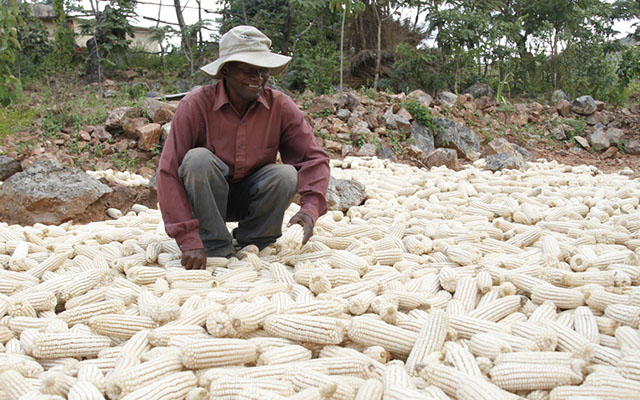Celebrating couples of the struggle

Sifelani Tsiko
Zimpapers Elections Desk
INSTEAD of getting glammed up and going on romantic dates in fancy restaurants, living and working for the settler regime and focusing on their own life, there were couples that sweated and fought side by side in the name of Zimbabwe’s liberation.
They are heroines that struggled together with their husbands to liberate the country.
The women participated and supported their husbands in the 16-year brutal war that led to the independence of Zimbabwe in 1980.
It is Heroes Day time again and it’s an important opportunity to shine a spotlight on the seven couples interred at the National Heroes Acre.
The interment of couples at the national shrine has created an encouraging space for women and all national efforts to fight for gender equality.
During the country’s liberation struggle women too wore military fatigues, wielding rifles, dodging bullets and bombs from the ravaging Rhodesian army.
Wives of veteran nationalists were incarcerated and harassed by the Rhodesian colonial forces. The recognition and honour of couples at the National Heroes Acre emphasises one key message for the country and in particular men: that throughout the protracted liberation struggle there were strong and brave women that stopped being just observers and supported their male counterparts in the struggle for independence.
The Zimpapers Elections Desk is honoured to be able to share a list of couples that have put real meaning to gender equality and the liberation struggle.
The seven couples interred at the National Heroes Acre include:
Joshua and Johanna Mafuyana Nkomo
Simon and Maud Muzenda

The Muzenda couple
Herbert and Victoria Chitepo

The Chitepo couple
Josiah and Ruth Chinamano
Eddison and Julia Zvobgo
Leopold and Sunny Ntombiyelanga Takawira
Joseph and Maria Msika

The Msika couple
When people discuss the history of the liberation struggle, they must embrace an all- inclusive approach and not forget the women who also took part, not only by firing rifles and joining the battlefield but who fed, nursed and dressed the freedom fighters.
Most brave women even lobbied for the release of captured freedom fighters and were regularly harassed, imprisoned and tortured.
It is befitting that Zimbabwe has couples that were recognised and honoured for their outstanding role in the liberation struggle.
This honour should epitomise our values and continually support all efforts of keeping the memories of the fallen alive through a wide range of roles and activities.
The cemeteries, memorials, graves, landscapes and other unmarked graves all keep our record of war that led to Zimbabwe’s independence.
The husband-and-wife team roles in the liberation struggle all showcase the importance of women in the struggle for gender equality and space.
Many will remember how Sarah Francesca Mugabe (June 6, 1931 — January 27 1992), wife to former president Robert Mugabe suffered at the hands of the colonial rulers as she campaigned and lobbied British Members of Parliament for the release of political detainees in Rhodesia.
At the height of the armed struggle, she stood out as a mother figure and counsellor of the young guerrillas in camps inside Mozambique.
Joanna Nkomo popularly known as Mama Mafuyana (September 18, 1927 -June 3, 2003) and wife of late Vice President of Zimbabwe and veteran nationalist, Joshua Nkomo also showcased her motherly love to young cadres at various training camps and refugee centres in Zambia.
In March 1977, Mama Joanna Nkomo was forced to flee the country after Rhodesian authorities attempted to kidnap her 13-year-old child. In the post-independence period, she was engaged in various charitable activities for underprivileged children.
Maud Muzenda (October 8, 1922 – September 20, 2003), wife to late Vice President Simon Muzenda stood by her husband in the cause to liberate Zimbabwe. As a nurse, she was harassed and brutalised by the Rhodesian colonial government as she fought to improve remuneration and working conditions for underpaid black professionals.
She was arrested and detained for supporting her husband in the struggle. She played a critical role by treating injured freedom fighters as well as supplying them with money and medicines at Mvuma Hospital, where she was working.
Victoria Fikile Chitepo (March 27, 1928 – April 8 2016), wife of Herbert Chitepo, ZANU chairman who was assassinated in 1975, also campaigned for political rights of the black majority. She is remembered for leading a women’s protest at Salisbury’s Magistrates’ Courts in 1961 to promote the campaign for black citizenship. She led efforts to support refugees in various camps outside the country and she assumed various ministerial roles in the post-independence period.
Sunny Ntombiyelanga Takawira (July 02, 1927 — January 13, 2010), wife of the late veteran nationalist and Zanu founding Vice President Cde Leopold Takawira, suffered immensely at the hands of the brutal Rhodesian regime. She hosted early nationalists when they held secret meetings at her home in Highfield.
After the arrest of her husband 1964, she smuggled letters and information into and out of prison at Whawha, Gonakudzingwa and Sikombela detention centres as well as Salisbury Central Prison.
Even after the death of her husband in 1970 she continued to work for the liberation of Zimbabwe. She treated both civilians and those who were injured in the armed struggle.
She was also involved in demonstrations organised by nationalists’ wives whose spouses were languishing in detention.
Cde Ruth Nomonde Chinamano (February 16, 1925 – January 2, 2005), wife of the late veteran nationalist Cde Josiah Chinamano is also widely credited for spearheading campaigns to demonstrate against the detention of veteran nationalists Chikerema, Madzimbamuto, Nyandoro and many others.
She was one of the founding members of the National Democratic Party and offered the back of her Highfield shop to be used as an NDP office in 1961. She immediately joined ZAPU when NDP was banned. In 1963, she was elected secretary of the Salisbury District of the Zimbabwe African Women’s Union (ZAWU), Zapu’s Women’s League.
She remained active in politics in the post — independence era.
Julia Tukai Zvobgo (November 8, 1937 – February 16, 2004), wife to the late Zanu-PF legal supremo Eddison Zvobgo, endured harassment and torture by Rhodesian security agents who accused her of smuggling political messages to and from her husband and his colleagues who were detained.
She played a prominent role in the armed struggle in Mozambique where she attended to problems of women in military and refugee camps. She was also one of the pioneers of the Women’s League.
Maria Msika, who died in September 2017, and wife to national hero Vice President Joseph Msika, survived two grenade attacks in 1977 and harassment by Rhodesian security agents.
She belonged to a rare breed of women who married freedom fighters, despite the risks it involved.
Though quiet in her disposition, she was a prominent figure who mobilised women and preached unity in the country during and after independence.
We salute our couple heroes. They stood firm and sacrificed their lives for the freedom of the country.







Comments